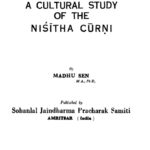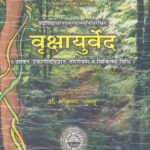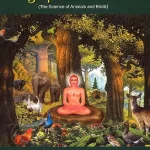‘Knower of the Field’ is the second novel of Dr. Phalgun Prativadi, M. D., after ‘Being and Becoming’. This is a short post to pen some thoughts after a first reading of this book that continues the story of Dr. Arya Krish. The book is available for purchase at Amazon and other stores. The author’s twitter handle has posted a brief thread that gives the reader a preview of the deeper ideas embedded.
The sequel to ‘Being and Becoming‘ is certainly a thought-provoking book. There are many ideas, dilemmas, and ethical questions rooted in Indic philosophy that are raised within this cerebral work that compel us to search within. This series is certainly nuanced and more introspective compared to the racy Robin Cook/ Michael Crichton type bestselling novels in the medical fiction genre.
The narration is sober and devoid of unnecessary diversions, and may take a little getting used to for those used to standard medical thriller fare. It places some emphasis on the characters and their internal manthan within a crisp action plot that takes forward the story of Arya Krish’s inner and outer Kurukshetra.
Readers may benefit by periodically pausing and reflecting upon the dharma-ethical points raised by the author. This, I feel, enhances the reading experience. The ‘field’ and the ‘knower of the field’ is discussed in Chapter 13 of the Bhagavad Gita: Sri Aurobindo’s translation.

This work comes across as a new genre of writing in the context of the next-generation medical technologies where the cutting edges of AI, healthcare research, and genetics meet and promise great things to humanity. Some of the initial promises have already fructified. For example, machines are getting better at cancer diagnosis compared to doctors.
Nevertheless, key decisions and choices that promise much material progress in the future also come with a whole lot of ethical issues and cascading side effects. As the main protagonist asks: “Will whatever we wind up accomplishing justify what we’ve done? All of it?“. All credit to the author for raising and skillfully dealing with such important questions. Readers will definitely enjoy reading this book and exploring its underlying ideas.
Click here to Buy this Book!!!
Incidentally, reading the book triggered a recollection of two related examples from recent US history about which we have sufficient data as well as knowledge of the context in which certain decisions were made:
Benefiting from the research of Unit 731: Recent studies bring to light the human experiments carried out by this WW2 Japanese army unit. While the Nazis were prosecuted for similar war crimes, this study notes that “In Japan, the U.S. played an equally key role in concealing information about the biological warfare experiments and securing immunity from prosecution for the perpetrators. ” This news article states that “The US side provided money, food, gifts, entertainment and other kinds of rewards to the former Unit 731 members, according to the report.“. The western world has been largely successful in neutralizing ‘Bio-terrorism’ today. There are multiple disturbing reports of clinical trials by western drug companies on Indians and people from other countries in recent years.
Wernher von Braun, NASA Pioneer: A ‘brilliant’ Nazi scientist, infamous for his V-2 missiles. He switched over to the United States after WW2. There have been attempts to whitewash his war crimes in Nazi Germany and give him a free pass after he became a founding father of NASA’s rocketry program and helped the US compete with, and eventually dominate the Soviet Union. He was richly rewarded despite the clear evidence per this report that “… there was never any acceptance of personal responsibility—for any of it. It was always something done by the Nazis, that he allegedly did not have anything to do with. He went out of his way to conceal this.“.
Rooted in such an inner space sans divinity, NASA’s outer-space achievements today are celebrated by many, including millions of Indians, as the pinnacle of humanity’s material progress. At a deeper level, space has become the latest battlefield, with minimal regard for the consequences.
We will have to apply our learning of dharma & its principles from our sacred scriptures to face contemporary challenges. The teachings of our Gurus and Rishis should guide our decision-making in the wake of such uncertainty.
References
- Howard Brody, Sarah E. Leonard, Jing-Bao Nie, Paul Weindling. United States Responses to Japanese Wartime Inhuman Experimentation after World War II: National Security and Wartime Exigency. Cambridge Quarterly of Healthcare Ethics. Vol 23(2). 2014.
- https://www.abc.net.au/news/2005-08-15/us-paid-for-japanese-human-germ-warfare-data/2080618.
- https://www.biography.com/scientist/wernher-von-braun
- How Much Did Wernher von Braun Know, and When Did He Know It? https://www.airspacemag.com/space/a-amp-s-interview-michael-j-neufeld-23236520.
Acknowledgments: Many thanks to Dr. Phalgun Prativadi for sending me a signed copy of this book.



